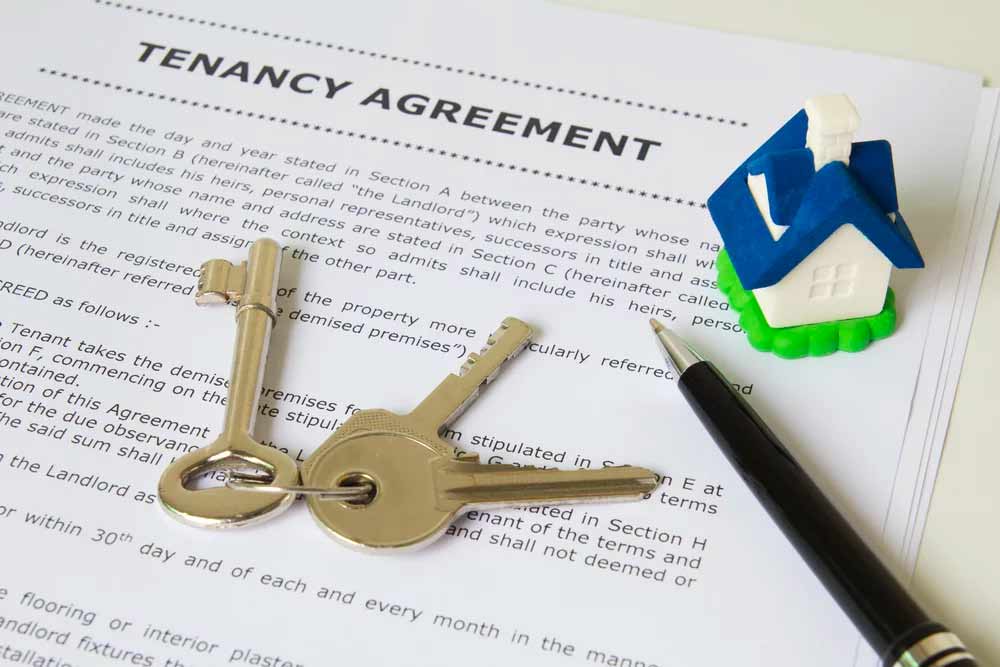A landlor
A landlord's job is made incredibly difficult when dealing with terrible tenants. Some are careless and damage the property while others consistently pay the rent late. Some have argumentative temperaments no matter how reasonable you keep your disposition.
If you're a veteran landlord, you've probably run the gamut of types of tenants. Under most circumstances, landlords will deal with troublesome tenants. However, there are ways to stop dealing with terrible tenants and attempt to develop positive relationships.
When a Tenant Hasn't Paid Rent
Many factors influence a tenant's reasons for withholding rent from their landlord. It could be anything from unemployment to cash flow shortages. They could also be refusing to pay because they're upset over repairs or maintenance issues they claim you're failing to address. Therefore, it's critical to communicate about the problem and determine the cause. If possible, attempt a negotiation.
- Have a Conversation: Talking to your tenants teaches them how to treat you. While it's easy to be a pushover, they know that when their bills pile up, they can't take advantage of you by skipping the rent. Therefore, having a positive conversation with your tenant will help put them at ease about the situation. You'll have a better understanding of the problems they're facing, and they know you're on their side.
- Consider working with a property manager: Not only will a property manager help you navigate rent collection, they understand how to talk to tenants when they can’t pay. Property managers are experts at being a neutral party. They develop an easy rapport with the tenants and help them understand how to better manage their finances.
When Terrible Tenants Slip Through the Screening Process
Conducting a credit check isn't an adequate tenant screening if that's the only screening you're doing. It won't give you insight into many of the issues their previous landlords experienced. However, the credit check is a good place to start; it's quite revealing.
Here are a few ways to improve your screening process to prevent terrible tenants from slipping through your barriers in the first place.
1: Background screenings must be thorough
Run a background check using the tenant's social security number, name, address, and phone number. You'll be looking at their credit from a credit reporting agency. Request and verify their rental work employment histories.
2: Perform interviews during showings
During the appointment, landlords must take the time to perform a pre-screening of the applicant. While they're looking at the unit, ask them why they're leaving their current residence. Ask them what their expectations are from this rental and the surrounding community.
3: Request applications during showings
Completing a thorough background check, including checking sex offender registries, is a critical part of the application process. Therefore, when prospective tenants arrive at showings, ask them if they feel comfortable filling out applications during their visit. If they don't have time, ask them to take the application with them and return it at their next convenience.
4: Verify past residencies
It's essential that you speak to landlords from the past when conducting background checks. Be wary of tenants that cannot supply references from professional management companies; it's possible they're having their friends field the call. Match their previous addresses from their background check to their application—are they providing you with accurate dates?
When Turnover Rate is Significant
Tenant turnover rates are high when they claim the landlord refuses to address repair and maintenance issues. You'll maintain relationships with your tenants when you respond to requests in a timely and professional manner. If you're unable to do it yourself, consider hiring a property manager. The property manager will help you work with tenants who are causing problems, and address issues they claim are present. Keeping your good tenants is the best prevention for avoiding terrible tenants.
Keeping Quality Tenants
One of the best ways to avoid turnover with your tenants is to complete repair and maintenance issues quickly and efficiently. Some landlords choose to use an online ticketing system. Tenants can submit work orders easily, allowing you to address the issues faster. Any good property management company will have an online tenant portal.
It's also essential to monitor competing properties to learn what they're offering for amenities and rental fees. If your tenants are up for renewal, be sure to negotiate their leases in advance. That way, they don’t feel the temptation to shop around for a cheaper rental elsewhere. It’s also critical to develop a strong sense of community. When tenants feel like they belong, they’re less likely to leave.
No One Likes Dealing with Eviction
The final solution for dealing with terrible tenants is an eviction. For those who have no idea how to handle the eviction process, it's ideal that you work with a property management company. They have experience with landlord-tenant law and will prevent mistakes from occurring. Before embarking upon this process, it's essential that you document every interaction you have with tenants causing problems.
Do you need help managing a property? Schedule a call with Green River Property Management to see if our services are a good fit for you.



 (495x640).jpg)


